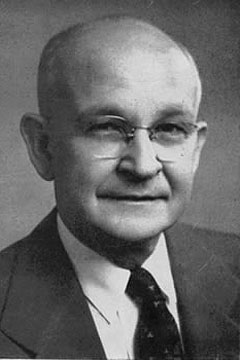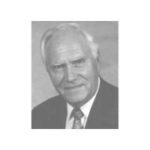 When the Stamps Quartet began their live radio program on KRLD out of Dallas, Texas, there was a famously recognized piano arpeggio that started every show: Marion Snider rolled an ascending F7 chord that introduced “Give The World A Smile”! That opening signature song was heard all across the country for many years as southern style gospel quartet music was growing in popularity. Marion had established himself as a talented pianist in his teens and following those early days with several of the Stamps-Baxter groups in the 40’s and 50’s he continued to work with a number of nationally known quartets. He also performed with his own group on a Sunday morning television program in Dallas and has been a strong supporter and promoter of southern gospel music for his entire life.
When the Stamps Quartet began their live radio program on KRLD out of Dallas, Texas, there was a famously recognized piano arpeggio that started every show: Marion Snider rolled an ascending F7 chord that introduced “Give The World A Smile”! That opening signature song was heard all across the country for many years as southern style gospel quartet music was growing in popularity. Marion had established himself as a talented pianist in his teens and following those early days with several of the Stamps-Baxter groups in the 40’s and 50’s he continued to work with a number of nationally known quartets. He also performed with his own group on a Sunday morning television program in Dallas and has been a strong supporter and promoter of southern gospel music for his entire life.
Tag Archives: Stamps-Baxter
Glenn Sessions
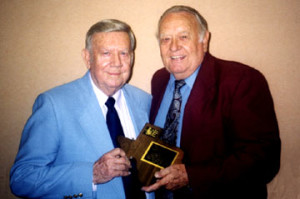 Glenn Sessions was born in the little country town of Kerans, Texas. Like many of our Texas music heroes, his love for music began in childhood, so in his teenage years he started singing with a male quartet from Weatherford. Then around 1939 he joined the Smile A While Quartet with a man named Deacon Utley from Macon, Georgia. In 1942 he moved to Detroit, Michigan to sing in a family group with his future father-in-law, Kelly Campbell. His involvement there was short, because that same year he joined the Air Force and served until 1944.
Glenn Sessions was born in the little country town of Kerans, Texas. Like many of our Texas music heroes, his love for music began in childhood, so in his teenage years he started singing with a male quartet from Weatherford. Then around 1939 he joined the Smile A While Quartet with a man named Deacon Utley from Macon, Georgia. In 1942 he moved to Detroit, Michigan to sing in a family group with his future father-in-law, Kelly Campbell. His involvement there was short, because that same year he joined the Air Force and served until 1944.
Following his military service he married Wilma Campbell in Detroit and returned to Dallas in 1946. Soon he was asked to sing with the Stamps-Baxter Menís Quartet and also began working in the bindery for Stamps-Baxter Music Company.
In the early 1950ís Glenn formed the Big State Quartet in Dallas – a very good menís quartet that gained an early following. But, in 1953 Glenn was asked to sing lead for the Rangers Quartet, a well-established group that had become very popular all across the South. Glenn eventually returned to the Stamps Menís Quartet to finish out the 50ís.
From 1983 until his death in 2001 Glenn sang with a very popular group in the North Texas area – the Gospel Lights. Headed up by pioneer, Cecil Pollock, the group had a passion for traditional four part harmonies and sang traditional classic quartet music as well as, new songs with a classic style
Cecil Pollock
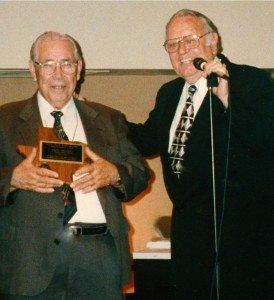
Cecil’s interest in the piano began so early in his childhood, that by the time he was 10 years old he was playing piano for his sister’s singing group. Then following his military service in the Army during the end of WWII, he moved to Dallas to study music at the Stamps-Baxter G. I. School of Music. At the completion of G. I. School he moved to Lubbock in 1950 to play piano for Otis Echols and the Melody Boys, while at the same time he played for the Tennessee Milk Company Quartet on live radio every day.
He was then called on to join the Imperial Quartet back in Dallas, and from there, played for the original Rangers Quartet with Arnold and Vernon Hyles through 1954. He also worked for the Ozark Quartet out of Wichita Falls for a while, a very popular group that had a young Glen Payne singing lead
He returned to Dallas in 1956 to work for the Stamps Quartet Music Company
where he also got to play the famous F7 arpeggio that started ‘Give The World A Smile’ for Frank Stamps and the Stamps Quartet on early morning radio. His time with Stamps continued for several years until 1961 – and following that, in the early 60’s, he played for The Watchmen Trio out of Dallas.
In 1972 Cecil formed the Gospel Lights, a mixed group that is still singing today. This name was taken from the Gospel Lighthouse Church in Dallas, where Cecil directed the music program for several years. Also during that time, he played for Calvin Wills and the Wills Family Quartet from 1979 through 1983.
Frank Stamps
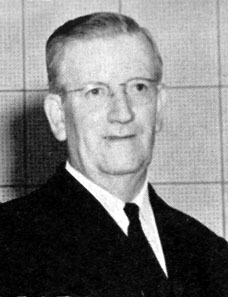 Frank Stamps, one of gospel music’s foremost singers, recording artists, music publishers, broadcasters, masters of ceremony, and through the Stamps Quartet School of Music, educators. In 1936, he was a founding father of the National Singing Convention, an organization which has convened annually ever since. “Mister Frank”, as he was affectionately called, traveled the length and breadth of the United States promoting gospel music, participating in gospel singings – local, county, state, and on the national level. Truly the Lord’s ambassador whose heart and voice had wings.
Frank Stamps, one of gospel music’s foremost singers, recording artists, music publishers, broadcasters, masters of ceremony, and through the Stamps Quartet School of Music, educators. In 1936, he was a founding father of the National Singing Convention, an organization which has convened annually ever since. “Mister Frank”, as he was affectionately called, traveled the length and breadth of the United States promoting gospel music, participating in gospel singings – local, county, state, and on the national level. Truly the Lord’s ambassador whose heart and voice had wings.
Virgil O. Stamps
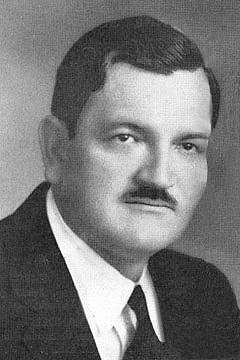 Virgil O. Stamps [1892 – 1940] was the older brother to Frank, and the first to inspire and promote southern-style gospel singing across America. Though he was a noted singer, writer, publisher, and pioneer recording artist, his greatest accomplishment was spreading gospel music through the “glory days” of radio. For several years his company counted many salaried quartets and more than 100 affiliated quartets on radio stations nationwide. After working for the Vaughan Music Company from 1915 into the early 1920s, Stamps launched out on his own in 1924 and founded the V.O. Stamps Music Company in Dallas, Texas. Two years later, Stamps merged the company with J. R. Baxter, Jr. to form the Stamps-Baxter Music and Printing Company. By the late 1930s, it was the most successful publisher of shaped-note songbooks in America. The company’s annual Stamps-Baxter School of Music, that began in the mid-1920s, stood as the largest developer of gospel singers in Texas and throughout the South for more than four decades.
Virgil O. Stamps [1892 – 1940] was the older brother to Frank, and the first to inspire and promote southern-style gospel singing across America. Though he was a noted singer, writer, publisher, and pioneer recording artist, his greatest accomplishment was spreading gospel music through the “glory days” of radio. For several years his company counted many salaried quartets and more than 100 affiliated quartets on radio stations nationwide. After working for the Vaughan Music Company from 1915 into the early 1920s, Stamps launched out on his own in 1924 and founded the V.O. Stamps Music Company in Dallas, Texas. Two years later, Stamps merged the company with J. R. Baxter, Jr. to form the Stamps-Baxter Music and Printing Company. By the late 1930s, it was the most successful publisher of shaped-note songbooks in America. The company’s annual Stamps-Baxter School of Music, that began in the mid-1920s, stood as the largest developer of gospel singers in Texas and throughout the South for more than four decades.
J. R. “Pap” Baxter
J. R. “Pap” Baxter [1887 – 1960] was truly a pioneer in the development of Southern Gospel Music. Individually and through his partnership with V.O. Stamps, his impact on the growth of gospel music was far reaching. After an early career with the A. J. Showalter Company, he joined forces with fellow entrepreneur V. O. Stamps in 1926 and the pair created one of the most successful companies in the gospel music: the Stamps-Baxter Music Company in Dallas (Oak Cliff) Texas. The annualStamps-Baxter School of Music trained several generations of young people throughout the South in the fundamentals of composing and performing gospel music. Baxter helped to popularize gospel music across the country through the publication of shaped-note songbooks and by sponsoring Stamps-Baxter Quartets in many Southern states.

